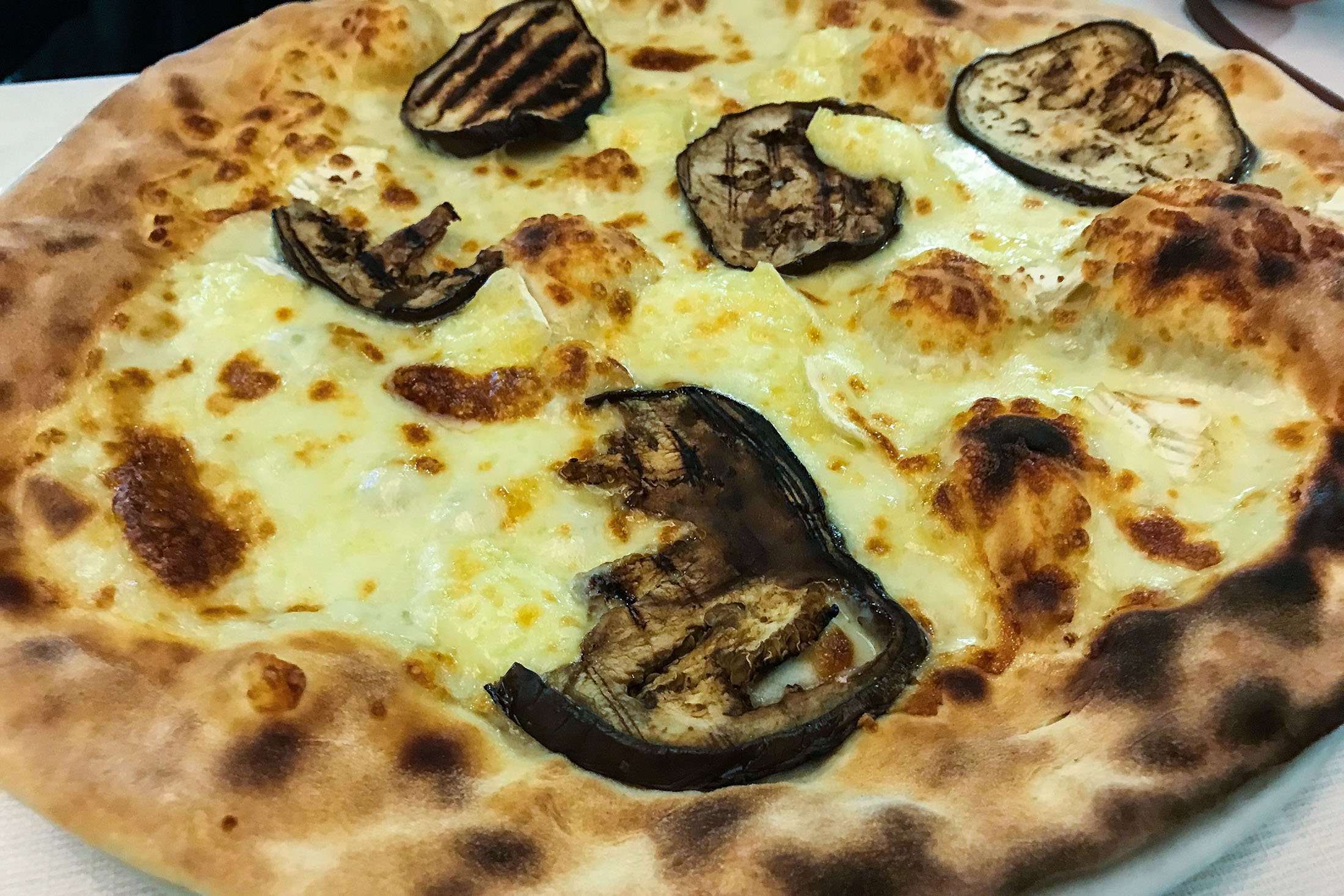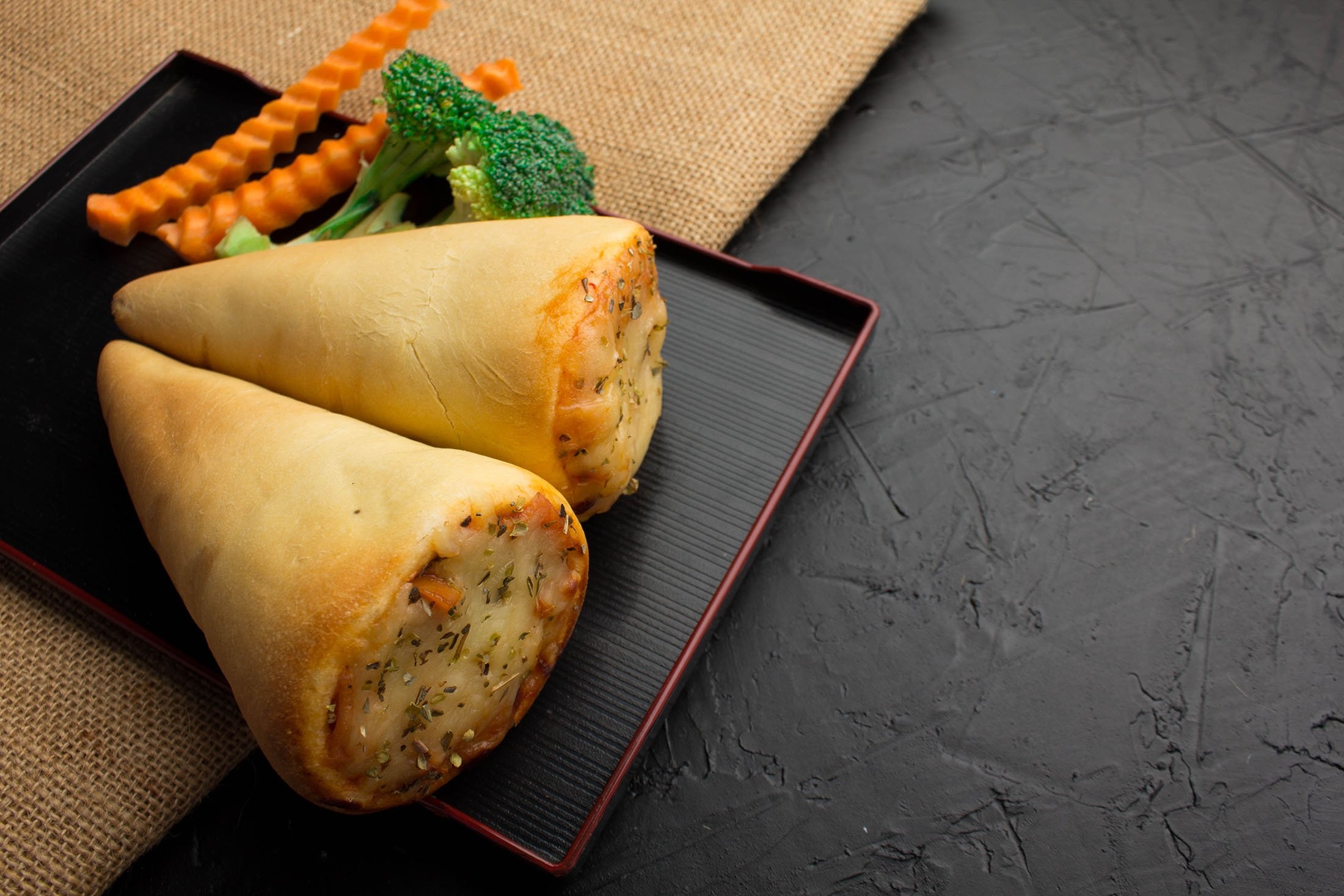© Turkuvaz Haberleşme ve Yayıncılık 2025
Every year has the latest food trends flooding the social media sphere. In the first year of the pandemic everyone was making their own bread and a couple years back zoodles were all the rage. Yelp predicted way back in December what we'll see on our feeds in 2022; here is a selection of them and how to make them.
When I saw that word for the first time, I had absolutely no idea what it might even be but a quick search via dear old Google enlightened me and had me intrigued. The croffle is a combination of croissant and waffle. Basically, you take croissant dough and, instead of baking it in the oven, smash it into the waffle iron. Just like a regular croissant, you can eat it both sweet and savory. Yelp’s stats show a major uptick in searches on croffles of an astonishing 1,505%
This trend reminds me a bit of the recently viral combination of croissants and muffins, dubbed cruffins, where the croissant dough is stuffed in muffin tins and filled with many delicious variations. Similarly, the cronut is a combination of a doughnut (or donut) and the croissant. The dough is cut out like a donut and fried. Glazed and you got a crunchier version of the classic cronut.
These trends will probably continue in the coming years, making me wonder what combination with the croissant will come next. Combing croissant and baklava to make Craklava? Let’s see what is to come.
As mentioned before, almost everyone delved into the realm of bread making, especially the sourdough kind, when they were stuck at home during 2020 and parts of 2021. The report predicts a return to the bakeries to get some brioche and challah. While I’m all for supporting the local artisans I’d rather make this at home if I have the craving for it. The difference between brioche and challah is that while the texture is pretty much the same, brioche has much more fat (butter). I personally can’t handle too much fat so here’s a recipe to make your own challah!
Ingredients
Instructions
Dissolve the yeast in the warm water. Add one of the eggs and olive oil and give it a quick mix. Pour this into a bowl with the flour, sugar and salt and start kneading. As with any yeasted dough, you have to knead for a while to get a smooth dough but the work is most definitely worth it. Around 20 minutes of kneading should suffice. A machine can do it for you as well if you have one.
Cover the dough with a damp kitchen towel and let it rest in a warm place for about an hour so that the dough can rise to about double its size. Dust your work surface with a bit of flour and separate your dough into either 2, 3 or 4 pieces, depending on how you want to braid it. Personally speaking I don’t bother with the complicated versions and just go with two and twist them together, making sure to fold both ends under that the bread overall has the same thickness throughout.
Whisk the egg a bit with the help of a fork and brush it onto the bread and let it rest on the baking tray (with some baking paper of course) for 20 minutes. Bake for about 30 minutes at 180 degrees Celsius (350 degree Fahrenheit) or until it gets a golden brown color.
Tip
This is just the plain version. As this is actually a celebration pastry for the Jewish community it is often decorated with all kinds of seeds. Sesame, poppy or sunflower seeds are just a few combinations – let your imagination run wild.

Blonde pizza
Pizza is always a thing to that is almost universally loved by everyone, so it is only natural that a version of it is just different enough to make the headlines. The blonde version here is made without any tomato sauce. Sounds simple enough, but the taste matters indeed.
Pizza Cones
If you think that pizza just won't work without any tomato, check out the trend of transforming the rather flat dish into a portable cone and stuffing it with some delicious toppings – or rather stuffings – to make it the perfect snack on the go.

While more bread versions are listed in the report (like calic: a garlicy, cheesy sourdough bread) it is high time to have a look at a dessert. Malasadas are also known as “Portuguese fried dough” and are sometimes filled with a delicious cream called haupia. It is quite popular in Hawaii but has slowly started to draw the internet into its delicious realm. Here’s the recipe without the cream.
Ingredients
For the dough
For the topping
Instructions
Put the butter, milk and salt in a small pan and bring it to a boil over low heat and let it simmer for 5 minutes. Set it aside to let it cool down a bit. Dissolve the yeast in warm water and add 1 teaspoon sugar as well. Whisk the remaining sugar with the eggs in a separate bowl until foamy, which should take about 5 minutes. Add the milky mixture, yeasty water and flour into the eggs and knead it a bit. It should become a non-sticky dough. Grease a bowl with a bit of butter and put the dough into that and let it rest for 1 1/2 to 2 hours to let it rise.
Once rested, take the dough out and roll it out to about 1 centimeter (0.4 inches) thickness and let it rest for another hour. Of course, it needs to be covered as well. Plastic wrap is the best way to go about it. Mix the sugar and cinnamon on a wide plate.
Heat the oil and pinch off small pieces of the dough, about walnut-sized, roll them into a bit in a ball or make a ring and fry it on both sides until it is cooked through and gets a golden brown color. Put the fried dough onto paper towels to let the excess oil drip off for a couple of seconds and toss the malasada into the sugar. Enjoy as soon as possible.
